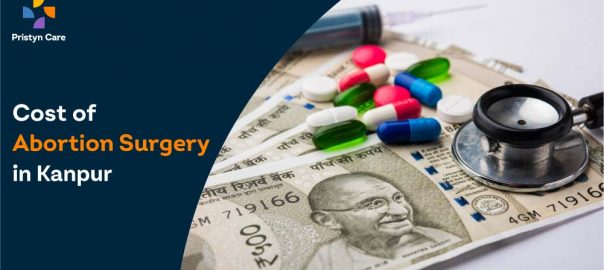![]() Views: 11,434
Views: 11,434
Is Abortion Legal in India ?
Abortion is a contentious issue in India, much like in other parts of the world. However, there is often confusion surrounding the legality of abortion in the country due to its complex laws and regulations that have evolved over time. This blog aims to provide a clear and concise overview of the current legal status of abortion in India, its historical context, and the legal framew...
ork that governs it. Read moreAdditionally, we will examine women's rights in relation to abortion, the involvement of medical professionals, and the challenges and opportunities for accessing abortion services in India. Through this blog, readers will gain a comprehensive understanding of the complexities surrounding the issue of abortion in India.
Dedicated Support at Every Step!
Our Doctors are available 24 hours a day, 7 days a week to help you!
Table of Contents
Is Abortion Legal in India?
In India, abortion is legal under specific circumstances as per the Medical Termination of Pregnancy (MTP) Act of 1971. This act allows registered medical practitioners to perform abortions in cases where continuing the pregnancy poses a risk to the woman's physical or mental health or if the pregnancy was a result of rape or incest. Recently, in 2021, the MTP Act was amended to extend the limit for seeking an abortion from 20 weeks to 24 weeks under certain conditions. However, despite the legal provisions, various challenges and obstacles still exist in accessing safe and legal abortion services in India.
No Cost EMI, Hassle-free Insurance Approval
Abortion Laws in India
Abortion laws in India are governed by the Medical Termination of Pregnancy (MTP) Act of 1971. This Act permits the termination of a pregnancy under specific conditions and circumstances.
The Act states that a pregnancy can be terminated up to 20 weeks of gestation if there is a risk to the physical or mental health of the woman or if there is a risk of the child being born with a physical or mental abnormality. It also allows for termination in cases of rape, contraceptive failure, or contraceptive device malfunction.
The Act mandates that abortions can only be performed by registered medical practitioners in registered medical facilities that have the necessary infrastructure and equipment to ensure the safety of the woman undergoing the abortion procedure. The person performing the abortion must have the necessary training and expertise to carry out the procedure safely and effectively.
Moreover, the Act requires that women seeking an abortion provide their informed consent for the procedure. In cases where the woman is below 18 years of age, the consent of a parent or guardian is required.
Any unauthorized person or quack performing an abortion is considered illegal, and it can lead to imprisonment and other legal consequences. Additionally, the Act prohibits the disclosure of the identity of women who undergo an abortion, and any violation of this provision can lead to legal action.
In conclusion, the MTP Act of 1971 governs abortion laws in India, which allow for the termination of pregnancy under specific circumstances and conditions, performed only by registered medical practitioners in registered medical facilities with the consent of the woman or her parent/guardian in certain cases.
Is Abortion Legal in India For Rape Victims
Abortion in India is permitted for rape victims under certain conditions as per the Medical Termination of Pregnancy (MTP) Act of 1971. This act allows registered medical practitioners to perform abortions if the pregnancy is the result of rape or incest. Victims of rape or sexual assault may experience significant physical, emotional, and psychological trauma and access to safe and legal abortion services is essential in such situations. The MTP Act was amended in 2021, increasing the upper limit for seeking an abortion from 20 weeks to 24 weeks, subject to specific conditions. However, despite the legal provisions, women in India often face significant challenges in accessing safe and legal abortion services. These include a lack of awareness about their rights, a shortage of medical facilities, stigma and discrimination, and socio-economic barriers. Additionally, many women may not seek abortion services due to fear of social ostracization, lack of support from family and society, and restrictive cultural and religious beliefs. Therefore, there is a need to increase awareness about the availability of safe and legal abortion services and address the various social, economic, and cultural barriers that prevent women from accessing these services. Ensuring access to safe and legal abortion services for rape victims is essential to protect their physical and mental health, preserve their reproductive rights, and promote gender equality.
Is Abortion Legal for Unmarried?
Yes, abortion for unmarried women is legal in India but under certain conditions. It became possible after the amendments that were made in the Medical Termination of Pregnancy Act, 1971, and also Pro-choice movement activists who are working hard for reproductive rights. According to the Medical Termination of Pregnancy Act 2021, the failure of contraceptives is the valid ground reason for abortion for an unmarried woman. In adult young women, abortion can be done by her consent. However, in a minor girl, consent from her guardian is needed with the proper reason to terminate the pregnancy.
Who Can Perform Abortion in India Under the Law?
As per the Medical Termination of Pregnancy (MTP) Act of 1971 in India, abortion can only be performed by registered medical practitioners. The Act defines registered medical practitioners as individuals who have a recognized medical qualification under the Indian Medical Council Act of 1956 and are registered with a state medical council or the Medical Council of India. To ensure the safety of the woman undergoing the procedure, abortions must be carried out in a registered medical facility that has the necessary infrastructure and equipment. The person performing the abortion must also possess the necessary training and expertise to perform the procedure safely and effectively. Any unauthorized person or quack performing an abortion is considered illegal and can result in imprisonment and other legal consequences.
What Diagnostic Tests Are Required Before Abortion?
Before the abortion, the doctor will ask some questions about your health and any medications you’re currently taking, as it could affect the abortion procedure. You might need to stop taking certain kinds of medication before you have a pregnancy termination in order to avoid complications. The tests that you have during your initial consultation are an important part of an abortion procedure. Some common diagnostic tests before the abortion in the fifth week of pregnancy are as follows:
- Pregnancy test: The first thing that a doctor may recommend is a pregnancy test in order to confirm that you’re pregnant. It is important to check that you’re definitely pregnant and that you’re not worrying for no reason. You can pick up a pregnancy test from most pharmacies or supermarkets. Make sure that you follow the instructions and that you understand how to read the results. If the test confirms that you are pregnant, you will need to consider your next step accordingly.
- Blood test: Knowing your blood group is extremely important before an abortion, as you might need extra treatment if you are rhesus negative. If you are rhesus negative and the fetus is rhesus positive, then it could trigger a reaction when you have a pregnancy termination. The doctor can give you an anti-D injection to prevent this from happening if you are rhesus negative. You don’t need to have the anti-D injection if you are certain that the baby’s father is also rhesus negative, but it’s a good idea to have the medication if there is any chance that he is rhesus positive. If the abortion triggers a rhesus reaction, then it could cause problems in any future pregnancies.
- STI testing: Doctors may recommend an STI test before an abortion. Anyone who is sexually active could have a sexually transmitted infection. If you are carrying an infection, then it is important to get treated before the abortion, as it could cause complications after the procedure. It is usually possible to eliminate the infection with antibiotics.
- Ultrasound scan: Doctor may recommend an ultrasound scan before the abortion. The scan will confirm that you are pregnant, get an accurate date for the pregnancy (which will determine the type of pregnancy termination that can be performed), and check for any issues, such as an ectopic pregnancy.
What Qualifications Does a Doctor Need to Perform Abortion In India?
To perform an abortion in India, a doctor must meet specific criteria and possess certain qualities as per the Medical Termination of Pregnancy (MTP) Act of 1971. The doctor must be a registered medical practitioner with a recognized medical qualification under the Indian Medical Council Act of 1956 and must be registered with either a state medical council or the Medical Council of India. Additionally, the doctor must have the necessary expertise and training to perform the procedure safely and effectively, including knowledge of pre-and post-operative care and the ability to manage any complications that may arise.
Moreover, doctors must possess non-judgmental attitudes, empathy, and sensitivity toward their patients, as abortion can be a sensitive and emotional issue for many women. It is essential for doctors to provide proper counseling and support to patients before and after the procedure.
Lastly, doctors must follow the legal and ethical guidelines outlined in the MTP Act, such as obtaining the informed consent of the patient and maintaining confidentiality. By adhering to these criteria and possessing the necessary qualities, doctors can provide safe and legal abortion services to women in Ind
Conclusion
To summarize, the Medical Termination of Pregnancy (MTP) Act of 1971 permits legal abortion in India, but only under specific circumstances and conditions. The Act allows for termination up to 20 weeks of gestation if the pregnancy poses a risk to the physical or mental health of the woman if there is a risk of the child being born with a physical or mental abnormality, or in cases of rape, contraceptive failure, or contraceptive device malfunction.
Registered medical practitioners can only perform abortions in registered medical facilities that have the necessary infrastructure and equipment to ensure the safety of the woman undergoing the procedure. The Act mandates that women seeking an abortion must provide their informed consent, and for those under 18, the consent of a parent or guardian is required.
FAQs around Abortion
The Supreme Court of India grants rights to unmarried women who wish to abort the pregnancy, thus making it clear that the marital status of women can not be a ground to deny or allow them access to safe abortion. The Supreme Court said that even single and unmarried women have the right to abort a pregnancy under the Medical Termination of Pregnancy Act till 24 weeks of pregnancy.
Doctors suggest medical abortion to abort a pregnancy of 4 weeks. Mifepristone is usually recommended in medical abortion. It stops the hormone progesterone from working due to which the uterus lining breaks down and the pregnancy cannot continue. Your healthcare provider will prescribe the right dosage and when to take it.
Medical abortion is the most effective way to abort a pregnancy of 5 weeks. Doctors recommend Mifepristone medicine to stop the hormone progesterone from working. This helps in breaking the uterus lining and terminating the pregnancy.
The minimum cost of an abortion can be as low as 5000 INR and can go at a maximum of 25000 INR.










